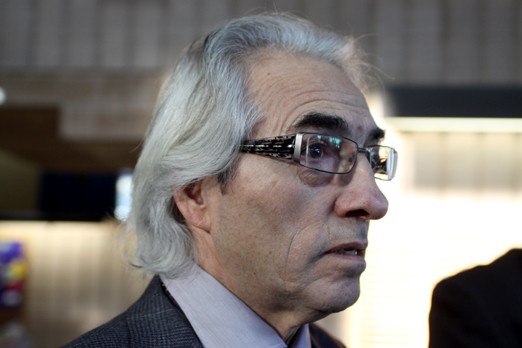Phil Fontaine is perplexed by the federal government’s decision to appoint third-party managers in Attawapiskat when it’s clear the community's housing crisis needs an immediate response.
“The fact of the matter is the community needs housing. Third-party managers cannot approve housing initiatives; it’s beyond their mandate, so what are we going to do about the situation?” said the former National Chief of the Assembly of First Nations.
Fontaine was in Thunder Bay Friday at Lakehead University to wrap up an Aboriginal outreach pilot project and to receive a honourary doctorate from the university.
He said the prime minister’s plan to send auditors to the community to find out how their finances have been managed won’t fix the problem because it lacks capacity building.
Prime Minister Stephen Harper said the federal government has given Attawapiskat $90 million over the last five years and the results are unacceptable.
Fontaine said the cost of living in the Far North is high and there is an obligation and a responsibility on the part of the government to have a management plan as it relates to First Nations. Also, First Nations ought to have their own community management plans that are linked with the government’s plans.
“I would suggest there has been absence of that in this case,” he said.
What’s most troubling about the crisis, said Fontaine, is that this is not a problem limited to Attawapiskat. Poverty amongst First Nations communities is an issue right across the country.
There has to be some serious discussion between the government and all First Nations communities, he said.
“We didn’t create the situation we have now with 126 First Nation communities that have had to operate with a boil water advisory for years and a housing crisis that has emerged … it has been with us for years and years,” he said.
“In my view, urgent action is required, not just in Attawapiskat but in many, many First Nation communities.”
Nishnawbe Aski Nation Grand Chief Stand Beardy said the majority of his 49 communities, including Attawapiskat, are living in Third World conditions and it is a standard challenge right across Northern Ontario.
“We’re probably short around 5,000 housing units,” said Beardy, adding that includes homes that are both new and in need of repair.
He said the problem is underfunding and that the $11 million deficit Attawapiskat has shouldn’t come as a surprise to the federal government.
In order for a First Nation to receive funding, they have to provide an annual audit completed by a licensed auditor that outlines exactly where the money is going, how every dollar is being spent.
“They have a threshold of eight per cent that if the number goes over eight per cent, they get attention from the funders that they need help,” said Beardy, adding on top of those reports a management letter is also sent to the funders highlight any concerns.
“So to be told by the federal government that it is your fault, to be told you’re mismanaging those funds is not necessarily the fact,” Beardy said.
The grand chief said by sending in third-party management, the government is sending a message that if you speak up about poor living conditions, you get punished.
And if the audit reports are highlighting weaknesses, Beardy said the government should work with those First Nations to make sure those issues are addressed.
The solution Beardy sees to eliminating poverty in the remote communities in the long-term is to put in place enabling legislation so First Nations can participate in resource development activities.
“Where resource revenue-sharing arrangements would be made with First Nations, with the governments and the industries so that we can begin to have resources to look after our own needs,” he said.
